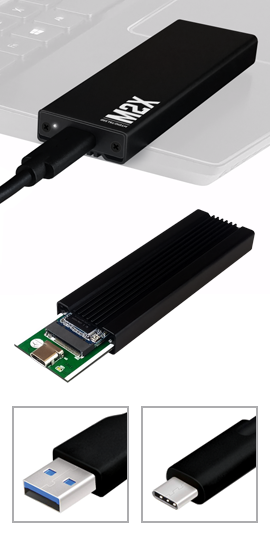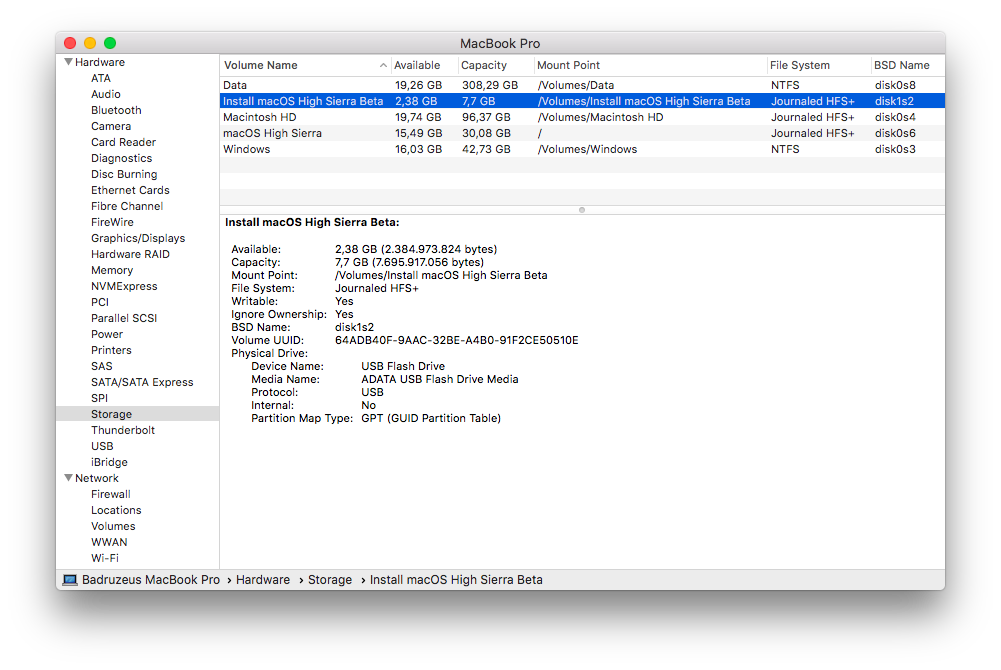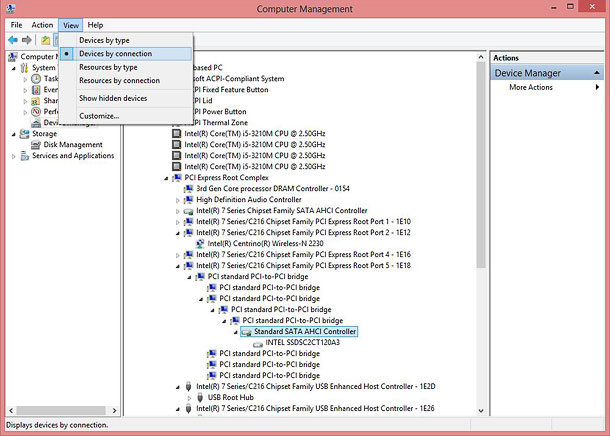- Asmedia Scsi & Raid Devices Driver Download For Windows 10 32-bit
- Asmedia Scsi & Raid Devices Driver Download For Windows 10 Download
- Asmedia Scsi & Raid Devices Driver Download For Windows 10 64-bit
- Asmedia Scsi & Raid Devices Driver Download For Windows 10 Xp
Last updated on FEBRUARY 17, 2019
Applies to:
Oracle Database - Enterprise Edition - Version 10.2.0.1 to 11.2.0.2 [Release 10.2 to 11.2]- Official support for Realtek RTL9210 support - Improved ASMedia ASM2362 support.
- The USB Attached SCSI protocol (UASP) is the younger/faster sibling of USB's Bulk-Only Transport (BOT) used to access HDDs/SSDs. It was introduced as an optional part of the USB 3.0 specs but can also be used with USB 2.0 host controllers when hardware/drivers are compatible.
It also supports backward compatible with legacy USB function and devices, compliant with USB Attach SCSI Protocol revision 1.0, supporting the function of debugport on USB3.2 port. ASMedia ASM3242 also supports the function of Multiple INs to achieve fully utilization rate of 20Gbps data rate, taking advantage of the available bandwidth of USB3.2 Gen2 x2 bus.
Oracle Database Exadata Cloud Machine - Version N/A and later
Oracle Database Exadata Express Cloud Service - Version N/A and later
Oracle Cloud Infrastructure - Database Service - Version N/A and later
Generic Windows
Asmedia Scsi & Raid Devices Driver Download For Windows 10 32-bit
z*OBSOLETE: Microsoft Windows
 z*OBSOLETE: Microsoft Windows XP (64-bit Itanium)
z*OBSOLETE: Microsoft Windows XP (64-bit Itanium)z*OBSOLETE: Microsoft Windows XP
Microsoft Windows Itanium (64-bit)
z*OBSOLETE: Microsoft Windows Server 2003
z*OBSOLETE: Microsoft Windows XP (64-bit AMD64 and Intel EM64T)
Microsoft Windows x64 (64-bit)
z*OBSOLETE: Microsoft Windows Itanium (64-bit) - 244
z*OBSOLETE: Microsoft Windows Vista (32-bit)
z*OBSOLETE: Microsoft Windows Server 2003 R2 (64-bit AMD64 and Intel EM64T)
Asmedia Scsi & Raid Devices Driver Download For Windows 10 Download
z*OBSOLETE: Microsoft Windows Server 2003 R2 (32-bit)
z*OBSOLETE: Microsoft Windows Vista x64 (64-bit)
z*OBSOLETE: Microsoft Windows Server 2008 (32-bit)
z*OBSOLETE: Microsoft Windows Server 2008 (64-bit Itanium)
 z*OBSOLETE: Microsoft Windows Server 2008 x64 (AMD64/EM64T)
z*OBSOLETE: Microsoft Windows Server 2008 x64 (AMD64/EM64T)Microsoft WindowsMicrosoft Windows XP (64-bit Itanium)Microsoft Windows Server 2003 (64-bit Itanium)Microsoft Windows XP (64-bit AMD64 and Intel EM64T)Microsoft Windows Server 2003 (64-bit AMD64 and Intel EM64T)Microsoft Windows (64-bit) on Intel ItaniumMicrosoft Windows Vista (32-bit)Microsoft Windows Server 2003 R2 (64-bit AMD64 and Intel EM64T)Microsoft Windows Server 2003 R2 (32-bit)Microsoft Windows Vista x64 (64-bit)Microsoft Windows Server 2008 (32-bit)Microsoft Windows Server 2008 (64-bit Itanium)Microsoft Windows Server 2008 x64 (AMD64/EM64T)Generic Windows
Symptoms
1) After OS restore, ASM instance cannot detect SCSI disks previously configured:
For example,
*
ERROR at line 1:
ORA-15032: not all alterations performed
ORA-15063: ASM discovered an insufficient number of disks for diskgroup 'DATA'
2) asmtoolg or asmtool are able to see the disk(s):
NTFS DeviceHarddisk0Partition1 20481M
FAT32 DeviceHarddisk0Partition2 4094M
NTFS DeviceHarddisk0Partition3 30725M
NTFS DeviceHarddisk0Partition4 30718M
ORCLDISKDATA0 DeviceHarddisk3Partition1 1027
3) Also, the dd for windows command is able to read on the disk (confirmed I/O access):
1+0 records in
1+0 records out
Qsr automations laptops & desktops driver download for windows 10 64-bit.
4) But v$asm_disk view cannot discover the disk(s):
no rows selected
Or
SQL> select path from v$asm_disks;
no rows selected
5) Kfed also confirmed a valid ASM disk header:
kfbh.endian: 1 ; 0x000: 0x01
kfbh.hard: 130 ; 0x001: 0x82
kfbh.type: 1 ; 0x002: KFBTYP_DISKHEAD
kfbh.datfmt: 1 ; 0x003: 0x01
kfbh.block.blk: 0 ; 0x004: T=0 NUMB=0x0
kfbh.block.obj: 2147483648 ; 0x008: TYPE=0x8 NUMB=0x0
kfbh.check: 1906290351 ; 0x00c: 0x719faeaf
kfbh.fcn.base: 0 ; 0x010: 0x00000000
kfbh.fcn.wrap: 0 ; 0x014: 0x00000000
kfbh.spare1: 0 ; 0x018: 0x00000000
kfbh.spare2: 0 ; 0x01c: 0x00000000
kfdhdb.driver.provstr: ORCLDISKDATA0 ; 0x000: length=13
kfdhdb.driver.reserved[0]: 1096040772 ; 0x008: 0x41544144
kfdhdb.driver.reserved[1]: 48 ; 0x00c: 0x00000030
kfdhdb.driver.reserved[2]: 0 ; 0x010: 0x00000000
kfdhdb.driver.reserved[3]: 0 ; 0x014: 0x00000000
kfdhdb.driver.reserved[4]: 0 ; 0x018: 0x00000000
kfdhdb.driver.reserved[5]: 0 ; 0x01c: 0x00000000
kfdhdb.compat: 168820736 ; 0x020: 0x0a100000
kfdhdb.dsknum: 0 ; 0x024: 0x0000
kfdhdb.grptyp: 1 ; 0x026: KFDGTP_EXTERNAL
kfdhdb.hdrsts: 3 ; 0x027: KFDHDR_MEMBER
kfdhdb.dskname: DATA_0000 ; 0x028: length=9
kfdhdb.grpname: DATA ; 0x048: length=4
kfdhdb.fgname: DATA_0000 ; 0x068: length=9
kfdhdb.capname: ; 0x088: length=0
kfdhdb.crestmp.hi: 32888073 ; 0x0a8: HOUR=0x9 DAYS=0x8 MNTH=0x5
YEAR=0x7d7
kfdhdb.crestmp.lo: 1131875328 ; 0x0ac: USEC=0x0 MSEC=0x1c3 SECS=0x37
MINS=0x10
kfdhdb.mntstmp.hi: 32922857 ; 0x0b0: HOUR=0x9 DAYS=0x7 MNTH=0x7
YEAR=0x7d9
kfdhdb.mntstmp.lo: 3848871936 ; 0x0b4: USEC=0x0 MSEC=0x248 SECS=0x16
MINS=0x39
6) Also validated the automount feature is OK:
7) Shutdown and startup the ASM instance but the problem persists:
C:> srvctl start asm -n nodename
Changes

OS was restored from backup.
Asmedia Scsi & Raid Devices Driver Download For Windows 10 64-bit
Cause
To view full details, sign in with your My Oracle Support account. |
Don't have a My Oracle Support account? Click to get started! |

| Symptoms |
| Changes |
| Cause |
| Solution |
| References |
Asmedia Scsi & Raid Devices Driver Download For Windows 10 Xp
ASMedia ASM3242 is a Universal Series Bus xhci host controller, bridging PCI Express to USB3.2 20Gbps, compliant with USB3.2 Specification Revision 1.0 and Intel eXtensible Host Controller Interface specification revision 1.1. It also supports backward compatible with legacy USB function and devices, compliant with USB Attach SCSI Protocol revision 1.0, supporting the function of debugport on USB3.2 port. ASMedia ASM3242 also supports the function of Multiple INs to achieve fully utilization rate of 20Gbps data rate, taking advantage of the available bandwidth of USB3.2 Gen2 x2 bus. ASM3242 supports one USB3.2 20Gbps port and perform trusting high speed bandwidth with PCI Express Gen3 x4. It uses advance process with low voltage supply, following standard PCI Express/USB Link power management and advance chip power management to reduce total power consumption efficiently under idle/standby state. ASM3242 integrates ASMedia self-designed PCI Express/SuperSpeed USB/USB2.0 PHY, supporting the proprietary driver for Windows 7 and in box driver for Windows 8.0, Windows 8.1, Windows 10 and various Linux kernels. The application of ASM3242 includes Motherboard, Desktop PC, Notebooks, Workstations, Servers, Add-in cards, PCI Express based embedded platform.
